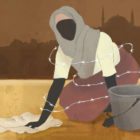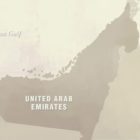INTRODUCTION
More than 23 million migrant workers live in the six Middle Eastern countries that make up the political and economic alliance known as the Gulf Cooperation Council (GCC): Saudi Arabia, Kuwait, the United Arab Emirates, Qatar, Bahrain, and Oman. Unfortunately, abuse of these workers is widespread, mostly due to the legal framework of the kafala sponsorship system — the legal framework defining the relationship between migrant workers and their employers — which can result in contract violations and dangerous working conditions, benefit unscrupulous traffickers, and cause discord among brokers and employers.








